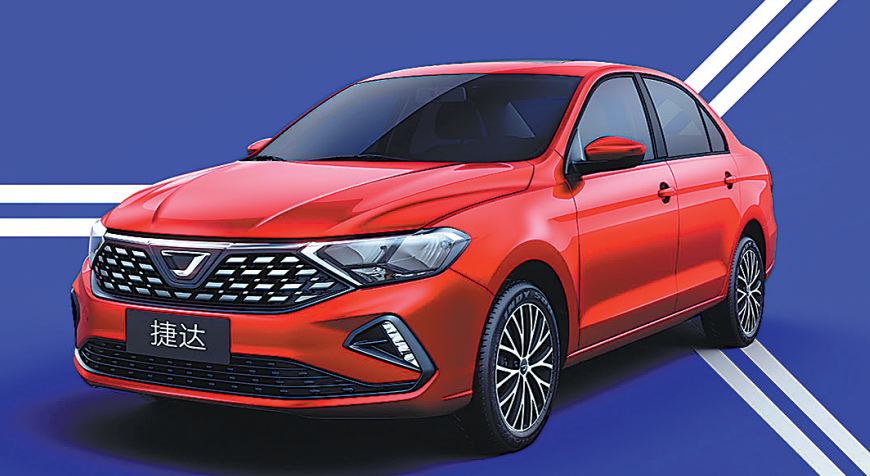Volkswagen set to explore deeper and wider to grow sales in China


The company said that given all of its features, it is "deliberately" positioned above China's average entry-level price of 38,000 to 45,600 yuan ($5,700 to $6,800).
The brand will begin with a lineup of one sedan and two SUVs.
"Sedans continue to be good sellers. But the SUV segment is generating tremendous growth momentum and now makes up nearly 50 percent of the entire (Chinese) market," said the company.
The models will be produced at Chinese joint venture FAW-Volkswagen's plant in Chengdu, Sichuan province. The first model will roll out in the third quarter of this year.
One of the largest carmakers in the country, FAW-Volkswagen is producing models under the Audi and Volkswagen brands.
Jetta is creating its own dealer network and will use different sales formats to appeal to its customers - with digitalized showrooms, promotions in shopping malls and mobile sales trucks, said Volkswagen. They added that about 200 dealers are to offer the new brand by the end of this year.
Jetta's annual sales are to grow to 400,000 by 2021, the Economic Observer quoted a senior executive at FAW-Volkswagen as saying.
It will not be a tough task if customers' good memories of the model that dates back to the 1990s continue. Last year, deliveries of Jetta cars in China totaled 320,000.
Shi Jianhua, a deputy secretary-general of the China Association of Automobile Manufacturers, said the Jetta brand is likely to help Volkswagen expand its market share in China.
Last year, 3.11 million Volkswagens were delivered in China, almost half of its global sales and 13 percent of passenger car sales in the country.
Volkswagen does not limit its efforts to making and selling cars - it has made forays into China's increasingly popular mobility sector.
In December, its joint venture with ride-hailing giant Didi Chuxing Technology Co was established in Shanghai, with Didi holding 60 percent of the stake.
According to the Caixin magazine, Didi has 550 million users, which account for more than 90 percent of China's ride-hailing market, and its drivers offer 30 million rides a day.
The growing popularity of ride-hailing services in congested cities such as Beijing and Shanghai is showing early signs of reduced private car ownership. Joining hands with ride-hailing companies and selling cars to them has become a new option to Volkswagen.
In a statement, Volkswagen Group China said the joint venture explores and develops fleet operation businesses, explaining that it will focus on fleet operations, fleet sales, fleet management as well as repair and maintenance services.
The German automaker will initially manage a fleet of about 100,000 new vehicles for Didi, of which two-thirds will be Volkswagen cars, Reuters quoted a senior Volkswagen source as saying.
The two companies eventually plan to design and develop dedicated vehicles together, it said.



































